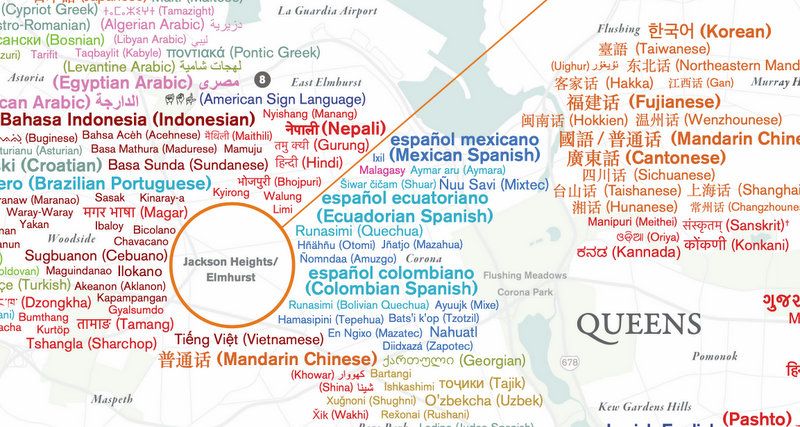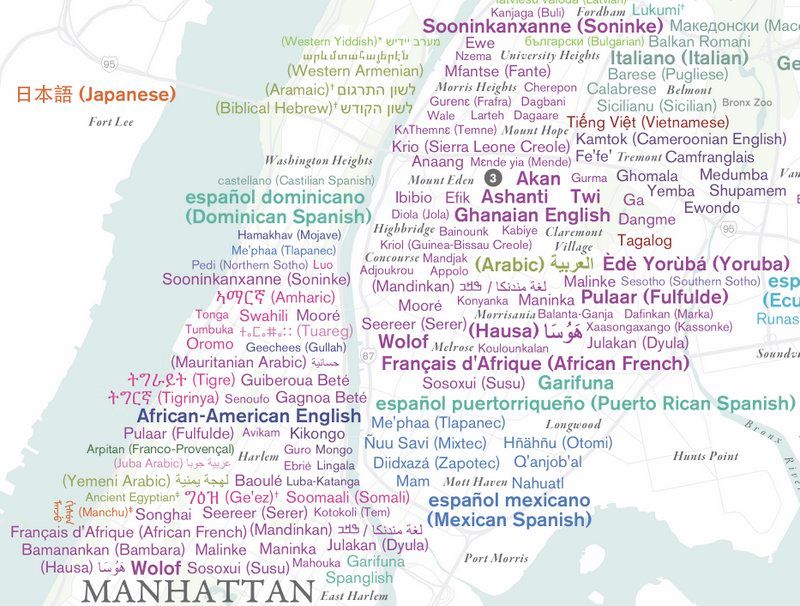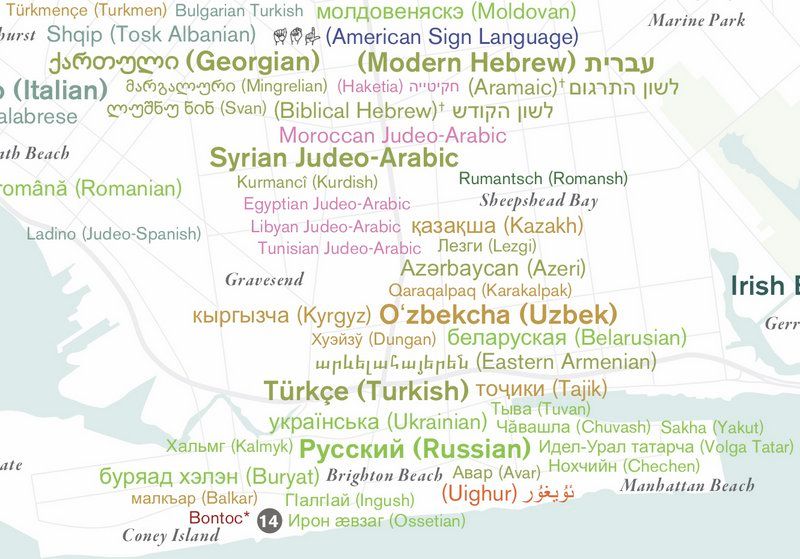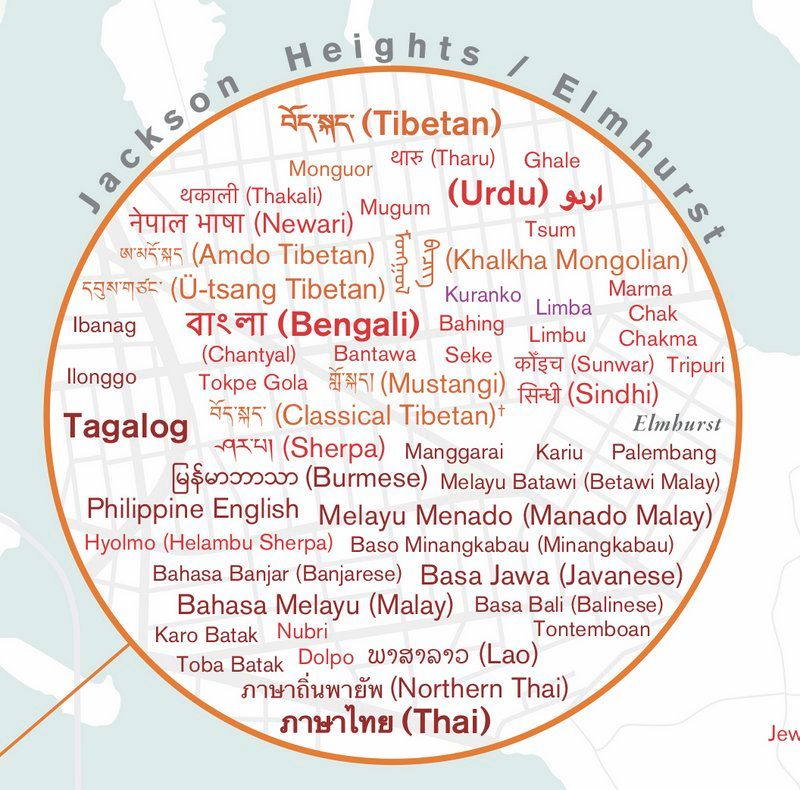Last-Minute NYC Holiday Gift Guide 🎁
We’ve created a holiday gift guide with presents for the intrepid New Yorker that should arrive just in time—


Did you know that New York City residents collectively speak at least 637 languages and dialects? A recent impressive map from the non-profit Endangered Language Alliance, first reported by Gothamist, highlights the linguistic diversity of New York City. The organization calls the city the “most linguistically diverse urban area in the world” and challenges the latest Census data’s official count at fewer than 200 languages.
Ross Perlin, the Co-Director of the Endangered Language Alliance, tells Untapped New York, “This is the first time linguists have designed a language map of New York City — or any American city, as far as we know. The map tries to make visible a tremendous degree of linguistic diversity which up until now has been effectively invisible.” Particularly, the map shows that certain endangered dialects and languages actually thrive upon arrival in New York, but are virtually lost in their country of origin.

One example is the Seke language that was originally spoken in five villages in Nepal but now has more speakers in Brooklyn. In Flushing, we were particularly excited to see Taiwanese (this author’s first language) along with the even lesser known Hokkien, also one of the official languages in Taiwan.

African languages and dialects in Harlem

Brighton Beach area

Jackson Heights QUeens” width=”800″ height=”790″ />Jackson Heights
The map is also a celebration of the extreme diversity of New York City, and by corollary, the importance of a more nuanced understanding of ethnic diversity, which as the Endangered Language Alliance asserts go “well beyond race or country of origin.” The press release from the organization states, “The map demonstrates how the arrival of smaller ethnolinguistic groups from the greater Himalayan region, West Africa, indigenous zones of Mexico and Central America, maritime Southeast Asia, and elsewhere have made the city hyperdiverse to a degree almost unimaginable just a few decades ago. On the eve of the controversial 2020 census, the Languages of New York map shows just how little official understanding there is of the city’s (and the country’s) diversity.”
You can actually get your own physical 24×36″ version of this map by donating through the Endangered Language Alliance’s extended Giving Tuesday campaign.
Next, check out more from our Fun Maps column!
Subscribe to our newsletter